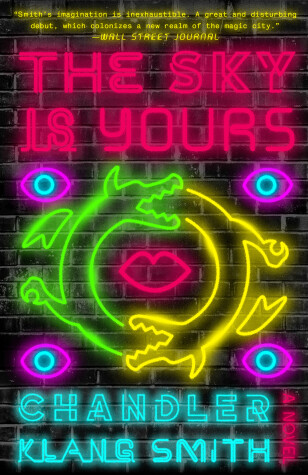
gmcgregor
Written on Jun 1, 2018
Teenagers Duncan Ripple and Baroness Swan Dahlberg belong to the uber-rich classes of the city. Duncan is a YouTube-style star who has been endlessly indulged for his whole life. Swan has been raised mostly in isolation, with a steady diet of Austen-esque novels which have given her a love for witty repartee, propriety, and the idea of a passionately consuming relationship. Their marriage is being negotiated, corporate merger-style, when Duncan goes out for a spin in his flying machine and crash-lands on an island of trash, where he meets Abracadabra, or Abby for short. That's not really her name, but it's the closest thing she knows from the woman who took her to the island and raised her there before she died, leaving Abby all alone. She and Duncan start sleeping together, and she becomes devoted to him...which he finds so enjoyable he brings her back with him to the city (a development that causes his ostensible fiancee Swan significant distress). The marriage does go through, but almost immediately thereafter the Ripple home is attacked by a marauding gang, driving the three teens into the streets and a world none of them has ever known.
This book is weird. Not garden-variety weird either, really weird. So much so that even quite a while after reading it, I'm not quite able to say whether or not I liked it. I found it undeniably compelling and interesting and loved the character work it does. I also found it alienating and often hard to follow or buy into even if I could follow it. Although it's a debut, it's a very assured book, with Smith seemingly feeling little need to engage in anything resembling explanation. It doesn't feel hostile to the reader, per se, so much as content to be enjoyed by those willing to go along with it and leave in the dust those who want to understand. Understanding isn't what it's trying to offer. Nor does its ending, which feels organic and earned, feel compelled to tie everything up in a nice neat little bow. There's a general sort of message, but what it seems to want, mostly, is get the reader to think about it rather than present an answer.
It's hard to know who (or who not) to recommend this book to. I wouldn't have recommended it to myself but I more or less enjoyed reading it, mostly, once I got into the flow of it. It's a fantasy/sci-fi novel in some ways, literary fiction in others, with elements that will likely be off-putting to those who particularly gravitate to either of those genres. It is very odd. I will say that if anything I've written about it has intrigued you, it's worth giving it a go. You might find that it works for you!
